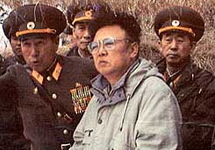
April 8, 2003 Jean du Preez and William Potter April 10 marks a significant event in the history of the 32-year-old nuclear Non-Proliferation Treaty (NPT). Since its entry into force in 1970, the NPT has grown to 188 members and become the most widely subscribed to international treaty in history. That number will decline by […]
Saddam’s Republican Guard provides stiff resistance against US and UK forces deployed in Iraq.
A myriad of armed tribal and Islamist militias in the north of Iraq could pose a threat to US forces stationed in the area.
Turkey and the United States have differences in attaining their objectives in Iraq, but the commonalities will eventually encourage the allies to cooperate.
A military unit dedicated to sacrificing themselves for Saddam has played a prominent part in attacking American forces in the south of Iraq.
As US forces approach the outskirts of Baghdad, the Pentagon has asserted that Republican Guard Units have the authority to deploy chemical weapons.
Documents taken in Iraq after the first Persian Gulf war showed the extent to which Saddam Hussein hoped to have his soldiers and even civilians exploit prisoners of war.

Occasional Paper #11: Focuses on the security of commercial radioactive sources, the sources that represent a significant category of radioactive materials that are widely used throughout the world for beneficial applications in medicine and industry, and—until recently—have not been considered high security risks.